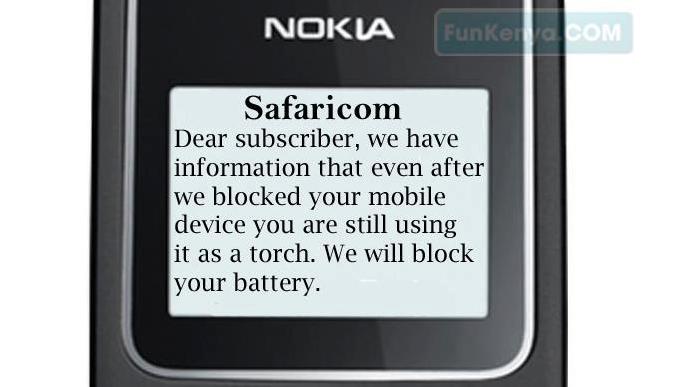
Carole Theuri, in her maiden appearance on the CIPIT blog, speaks candidly about how tech manufacturers ought to engage with emerging economies especially where intellectual property protection and technology transfer are concerned. Using the example of the Communication Commission of Kenya’s recent campaign to switch off all counterfeit/fake cell phones, she sees an opportunity for tech manufacturers to team up with more local partners to exchange knowledge and know-how on mobile phone repair, maintenance and recycling of components.
The recent gung-ho attempt to rid the Kenyan market of the fake mobile phone has inadvertently caused boom in business for the backstreet phone repair shops who have found a way to revive the fake phones to good working condition and get them back on the market. Like most Kenyans, this blogger has visited the backstreet phone repair shops to get a malfunctioning phone back in working order. The expense and scarcity of official repair shops for phones, opens up the market for the young tech savy computer graduates to start small businesses instead of spending their time looking for a job “tarmarking”.
Regrettably a recent copyright infringement suit (in the making) may see the end of the backstreet business of phone repairs. A recent article on wired.com titled The Shady World of Repair Manuals: Copyrighting for Planned Obsolescence, tells a story of Tim Hicks a 25 year old Australian who trawls the nooks and crannies of the internet looking for manufacturer service manuals and posts the PDFs online for free:
“Hicks was frustrated that there wasn’t a single website out there with every laptop service manual. He started the sight- aptly named “ Tims laptop service manuals”- because he fixes laptops himself. Tims site now streams over 50 gigabytes of manuals every day. Or rather… it used to. In a recent strongly worded cease and desist letter, Toshiba’s lawyers forced Tim to remove the manuals for over 300 Toshiba laptops”
Planned insolence (Designing a product with a limited useful life span) is the name of the game it seems when it comes to stopping sites like Tims from publishing repair manuals. This especially affects us in the developing world where phones are sold and distributed by people who bought the phones as consumers and not authorized distributors. If anyone has visited a backstreet phone/laptop repair shop they know that the technicians were not trained by Toshiba, Nokia or HP but have most likely gained their knowledge from the internet and sites like Tims. With tech manufacturers setting their sights on shutting down more service manual sites, there go the young men and women who make their contribution to the society by aptly using their talent and skill to repair the phones and laptops. And there goes hundreds of un-repairable phones into the rubbish piles contributing to the ever growing pile of non-degradable electronic waste and profits for the manufacturers who sell you the phone to replace the one that can no longer be repaired.
The facts are, it is illegal to redistribute work under copyright without the authors consent and that Africa is the largest dumping ground for refurbished electronics. The question here is, Should copyright extend information on how to repair your phone/laptop be it be in a repair manual or another form? Are the manufacturers taking unfair advantage of consumers by ensuring that their products can only be repaired by authorized personnel? And in the event of no such authorized personnel, will they be responsible for the growing pile of electronic waste in the developing world?
One can only hope more manufacturers are like Samsung who seem to have a “real” interest in doing business in Africa. Early this year Samsung launched various engineering academies on the continent. These academies train students on practical engineering skills for but not limited to their products. Currently Samsung has over 100 students selected from E-learning Centres at PC Kinyanjui and Kabete Technical Institute attending the Kenyan academy and receiving hands-on, practical skills training at no cost. This is indeed a better way of ensuring customers buy your products knowing that there are skilled and trained persons available to fix them rather than going then purposefully relegating products to the waste pile.
em